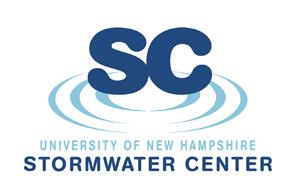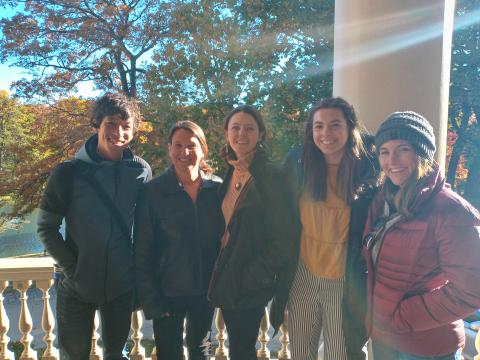UNH Collaborates with Municipalities for Sustainability Action
Since 2010, a group called the New England Municipal Sustainability (NEMS) Network has been meeting and collaborating regularly to support each other in their efforts to make communities across New England more sustainable. And since 2015, staff and faculty at UNH—including myself, Graduate School Assistant Dean and Natural Resources affiliate faculty Dr. Dovev Levine, and Josephine A. Lamprey Professor of Climate and Sustainability Dr. Cameron Wake—have been partners in that work, helping to coordinate and support the NEMS Network.

Last week, more than 25 members of the network, who are staff of municipal governments, met in Providence. We talked about “green infrastructure” and stormwater management, and learned about how the UNH Stormwater Center is a trusted and in-demand partner helping communities become healthier and more resilient.
We also talked about how the NEMS Network itself can be a more powerful force for change here in New England. This sounds deceptively simple; in fact, it’s a really interesting and complicated question, for a couple of reasons:
- The good news: There is SO much great work going on, from planning efforts (e.g. climate action plans and resilience plans for cities and towns across the region); to changes to local laws and ordinances; to programs like community power. This plethora of leadership is fantastic, and it makes it hard to know where to focus to have the most impact.
- The varied context: When it comes to sustainability, the laws and resources available in every state are really different. And of course, what every community needs and prioritizes is also really different. So, what are things we can all usefully be doing together?
- The challenges: Traditionally this work has not been done with an explicit commitment to inclusivity, community empowerment and consideration for the most vulnerable. While much can be done in communities, some action requires change at the state, national or even international level. That kind of policy change inevitably becomes political, and municipal staff must be non-partisan in their work, so there are limits to when and how they can advocate for this higher-level change. Yet, this is the kind of work that would be more powerful by virtue of doing it together.
- …Complemented by more good news and action steps to improve! The NEMS Network recognizes that there can be no sustainability without justice and equity, and its members are beginning to do the hard work of creating new approaches to community sustainability that center social justice at their core.
So what does this have to do with UNH? The short answer is A LOT. For example:
- We are wrestling with the same questions about how to meet our climate action goals, promote a culture and ethos of stewardship, and center diversity, equity and inclusion in community. So, we can learn from and with the NEMS Network.
- The new knowledge UNH researchers generate can support these efforts in communities. For example, UNH researchers are leading a new $10 million Atlantic Marine Energy Center investigating the potential for new renewable energy resources..
-
Students can work with these communities, and specifically with members of the NEMS Network, to advance professionally and personally—for example through our summer Sustainability Fellowships program.

Be sure to check back to the Sustainability Institute blog soon for Sustainability Institute Intern and COLSA student Julie Bobyock's ‘23 (Environmental Science major) guest blog post for her take on this opportunity to attend this NEMS Network meeting, as they are always inspiring! We are already looking forward to next spring’s meeting which we will host here in Durham!